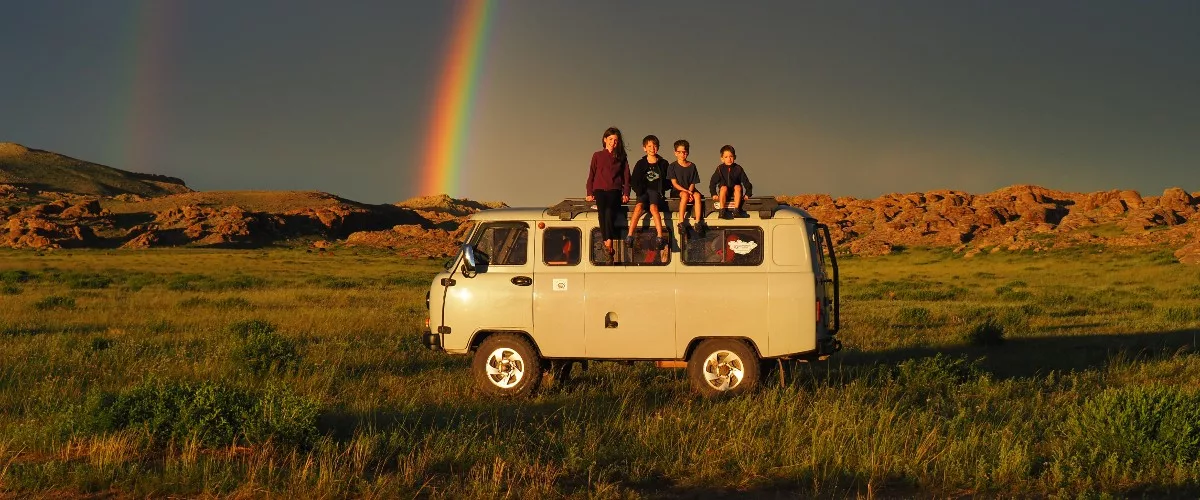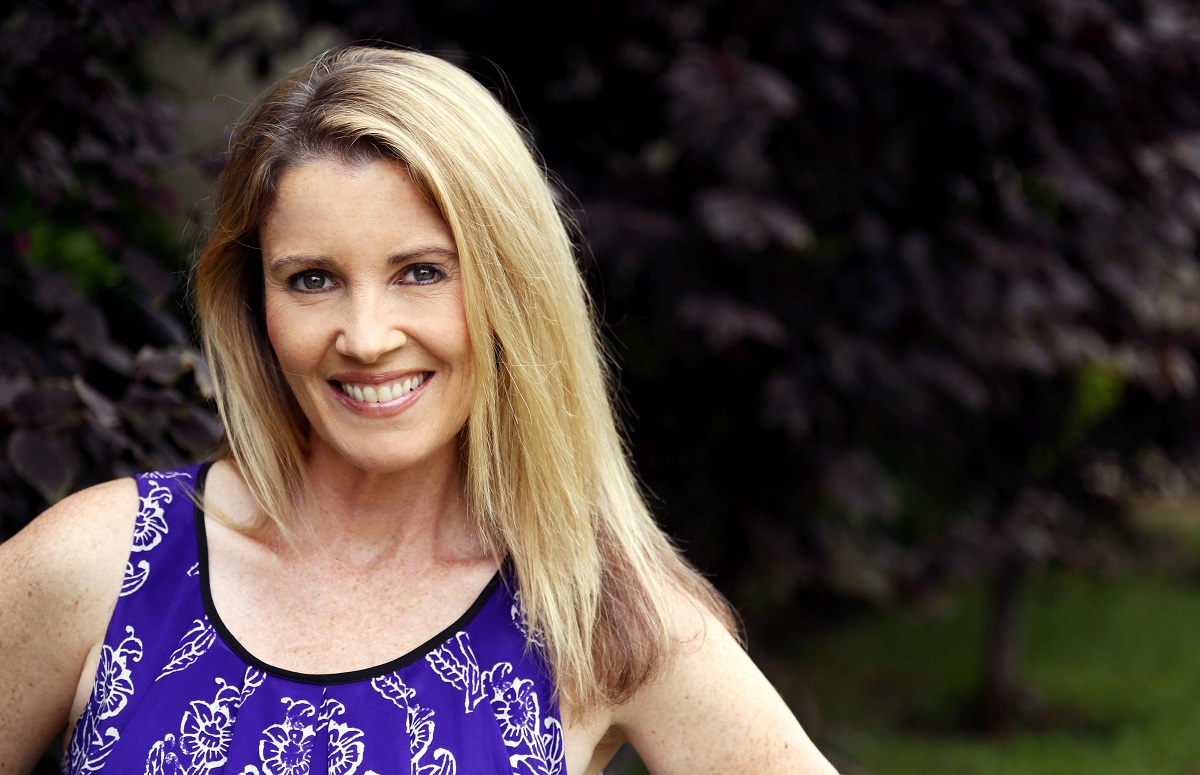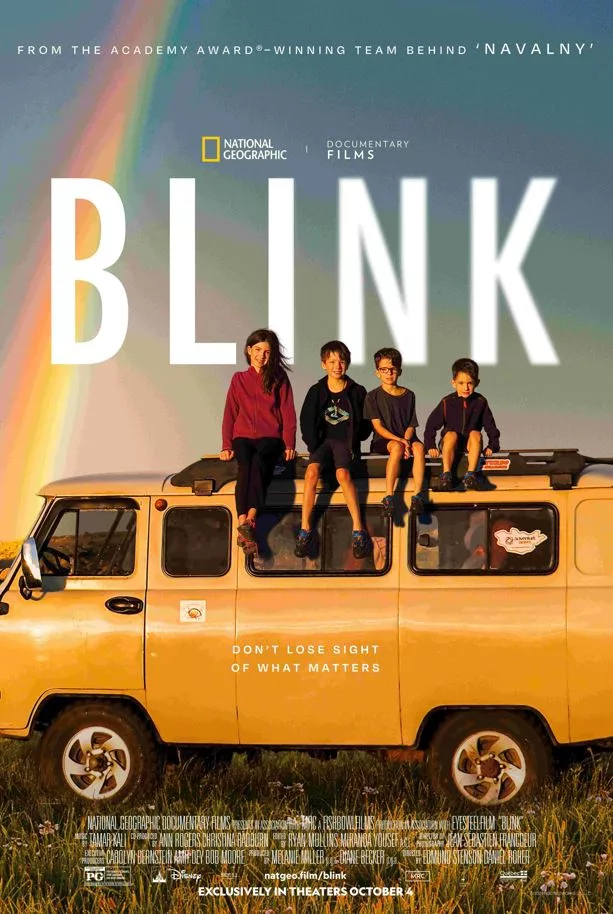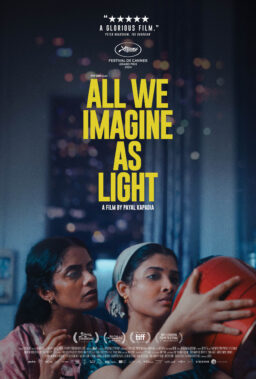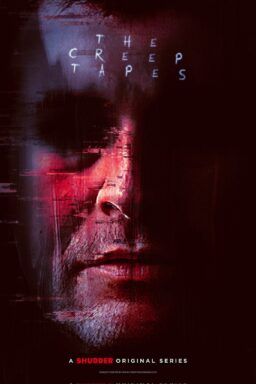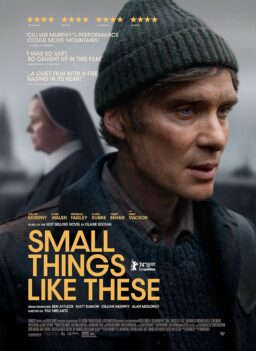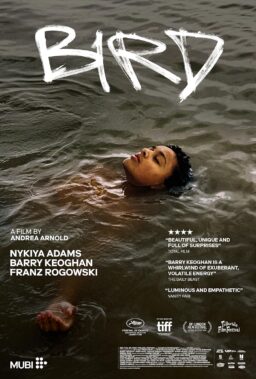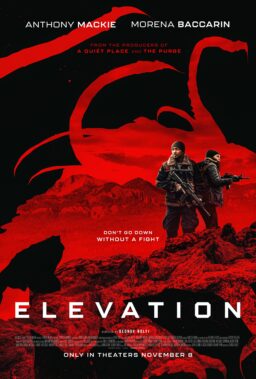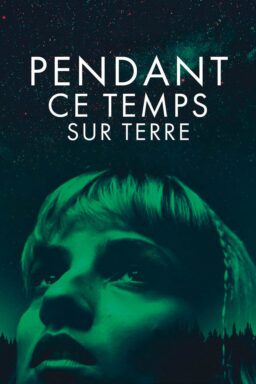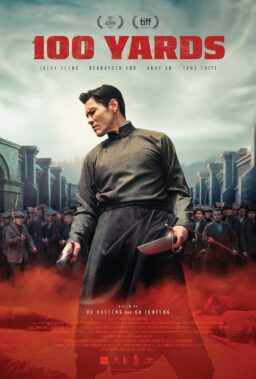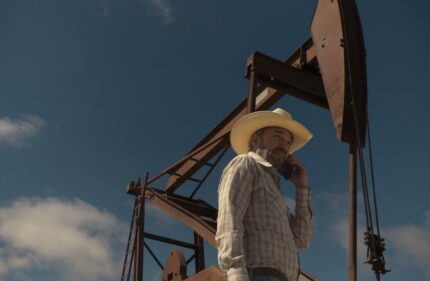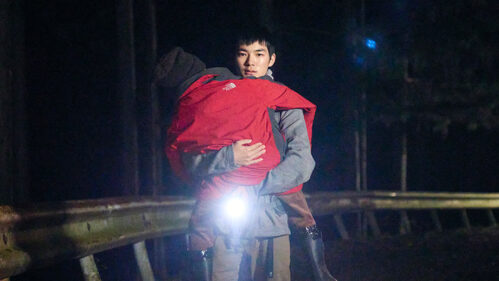Somewhere along the road between Montreal and Mongolia, Namibia and Nepal, Egypt and Ecuador, "Blink" achieves a transcendent state of grace.
The documentary about a family on a year-long global tour could have been an upbeat but shallow travelogue; it also could have been a heavy-handed tearjerker, given the adversity they're facing. Instead, directors Daniel Roher and Edmund Stinson wisely allow the innate drama of this journey to rise to the surface amid the recognizable rhythms of daily life.
Roher, an Oscar winner for best documentary feature for 2022's "Navalny," focuses this time on a different kind of courageous clan navigating an uncertain future. Edith Lemay and Sébastien Pelletier are the parents of four children: Mia, age 11 at the film's start; Leo, 9; Colin, 6; and Laurent, 4. Three of the four–Mia, Colin, and Laurent–have retinitis pigmentosa, a rare and incurable disease that eventually leads to total blindness. Early images of their Montreal home reveal the relatable hustle and bustle of daily life–"When you get to four kids, you accept chaos," Edith says matter-of-factly between loads of laundry–but we also follow the family to doctor appointments for eye exams that bring no good news.
The parents decide with poetic forethought to fill their children's brains with as many memories as possible so that, when they eventually do lose their vision, they can cling to what they've seen. They make a list of destinations and activities they've always dreamed of experiencing, then travel around the world to check off as many as possible. These range from the mundane (eating ice cream) to the adventurous (going on safari) to the universal (making friends in other countries). There's palpable excitement in this process, tinged with an undercurrent of melancholy.
We often see things at the kids' eye level, whether trudging through the mud of an Amazonian rainforest or hiking majestic trails in the Himalayas. Edith and Sébastien–and the movie–ask a lot of these young people, and they always rise to the challenge, which should be a lesson for overly cautious lawnmower parents everywhere. But cinematographer Jean-Sébastien Francoeur also pulls out to show us the big-picture perspective on the awesomeness of their journey: a shimmering sunset across the desert or the vibrant colors of hot air balloons floating through a morning sky.
Along the way, the Pelletier kids bicker with each other like all siblings do. They complain about being cold, or tired, or hungry, like all children do on vacation. But they also get nervous as night falls and their vision dims in the darkness, turning a playful pick-up game of soccer into a more stressful endeavor. Their fear is particularly acute in Ecuador when the family gets trapped mid-air in a gondola for over nine hours, a situation that would be frightening for anyone.
Part of the purpose of this journey is to lay the groundwork for these kids to learn how to make friends wherever they go, despite their disability, which we see repeatedly in simply moving ways. Colin bawls when he has to say goodbye to a sweet dog named Bella, whom the family meets while hiking in Nepal, a heart-wrenching moment in its understatement.
That's what's often the most effective in "Blink": The examples of fundamental humanity we see in these kids as they forge their paths through the world. If you're wondering how the family can afford to take a year off for such globetrotting, educational as it is, Sébastien explains briefly that he made money from his shares when the company he worked for got sold. Additionally, they aimed to travel on $200 a day, often staying in hostels and with families, which provided more opportunities to become immersed in their communities and meet regular folks.
It might have been nice to know a bit more about the parents before their journey as far as where they came from in undertaking such an ambitious quest. But the way they interact with their kids–and with each other in rare moments of candid quiet–says so much about their resourcefulness, and their heart.
